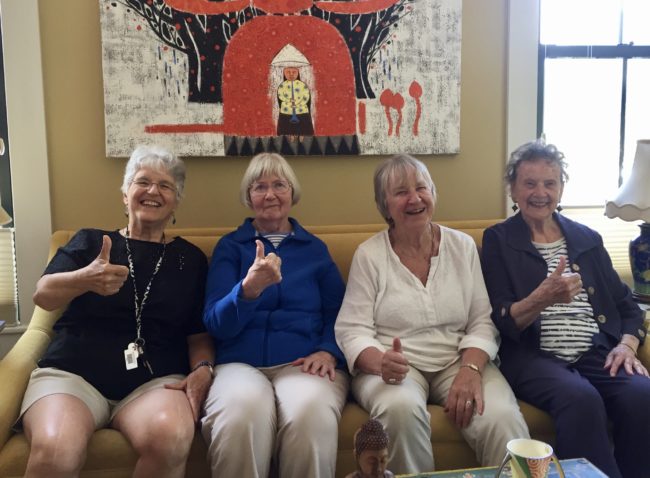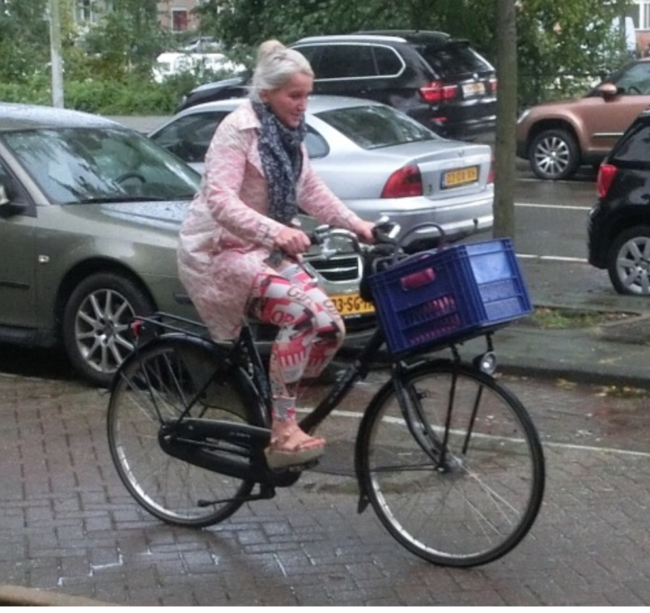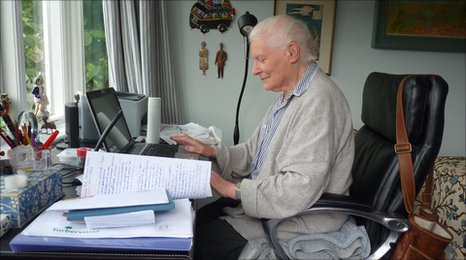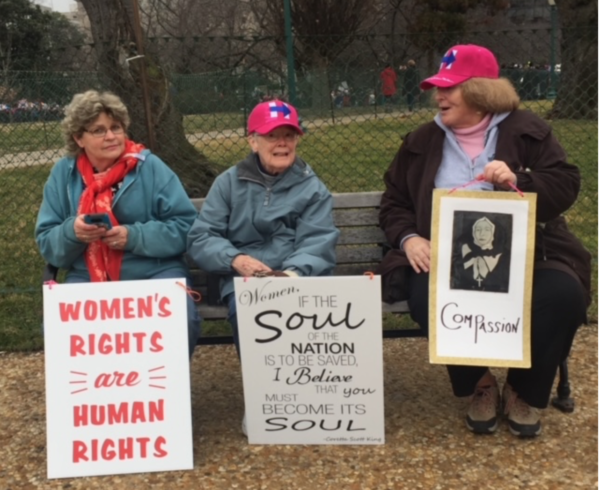Currently I’m teaching the course, “Women and Aging” at Portland, Maine’s senior college. The first day, as we went around the room introducing ourselves, one woman defiantly exclaimed, “I hate being old. I hate my lined face. I hate not being able to move as well as I once did. I hate being too old to date because men my age want younger women.”
While I tried to reassure the unhappy student that my intention was to frame aging in a positive way, defining aging as not the end of life but a new chapter for dusting off tabled dreams and cementing close relationships with family and friends, she protested that discussing ageism and sexism was “too depressing” and dropped my class.
I couldn’t get the unhappy student out of my head, leading me to question why some women are able to overcome the culture’s negative messages about aging. I made a mental list of those women I think of as “positive agers.” They all fit recent research studies that find a positive attitude is the key to a long, contended life.

Some of the older women I know who are aging positively
There’s the always cheerful 91 year old Joan, who reports: “I try not to look back. It was hard to lose my husband and our treasured home and move into independent living, but I’ve made new friends with whom I can share my love of dancing.”
82 year-old Alison uses a cane to get around, but wasn’t deferred from taking a trip to Greece when the opportunity arose. Her passion for life is inspiring, evident when she tells me, “I want to live as fully as I can while I can.”
Denise just turned 70, ushering in her new decade by buying a bike. On her first outing she had a minor accident but brushed it off as “beginner’s bad luck.” Now she greets spring with a bike ride through her favorite park.

Mary at 83 is drafting her 6th book after breaking her hip and being faced with a long period of being off her feet.
A few women I know are penning their memoirs to pass along to their grandchildren. They told me how moving it’s been to revisit heartfelt periods in their lives.

Diana Athill, the British writer, who published two memoirs in her 90’s
Even insomnia can be approached positively. A Quaker acquaintance, when waking in the middle of the night, reminds herself of the Quaker saying that the wee hours before sunrise are “God’s time.” She uses this sacred time to journal or read until she feels drowsy and can return to bed.
The sceptical reader might be asking: “But what if I don’t know how to think positively about aging? How do I get started?
The women in my study found a gratitude practice indispensable where they start each day giving thanks for what lightens their hearts. It can be as simple as appreciating a welcoming morning sun or anticipating a luncheon date with an old friend.

A simple way to move into a gratitude practice
My subjects practice living in the present, often employing mediation towards this end. Memories are to be treasured but the past remains in the past. Engaging in a meaningful activity generates a positive outlook. Join or start a book club, do volunteer work, or join a social action group like Elders for Climate Change.

Three senior activitists
My subjects haven’t stopped dreaming of new pursuits, but they have learned to modify their dreams to fit their changing circumstances. Instead of taking off for Thailand, they might plan a day’s trip to Boston or a Manhattan weekend.
For inspiration in maintaining a positive attitude collect moving passages, like this one by Henry Wadsworth Longfellow:
For age is opportunity no less
Than youth itself, though in another dress.
And as the evening twilight fades away
The sky is filled with stars, invisible by day.






